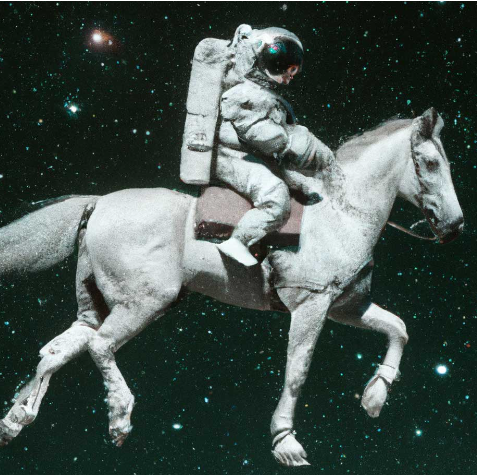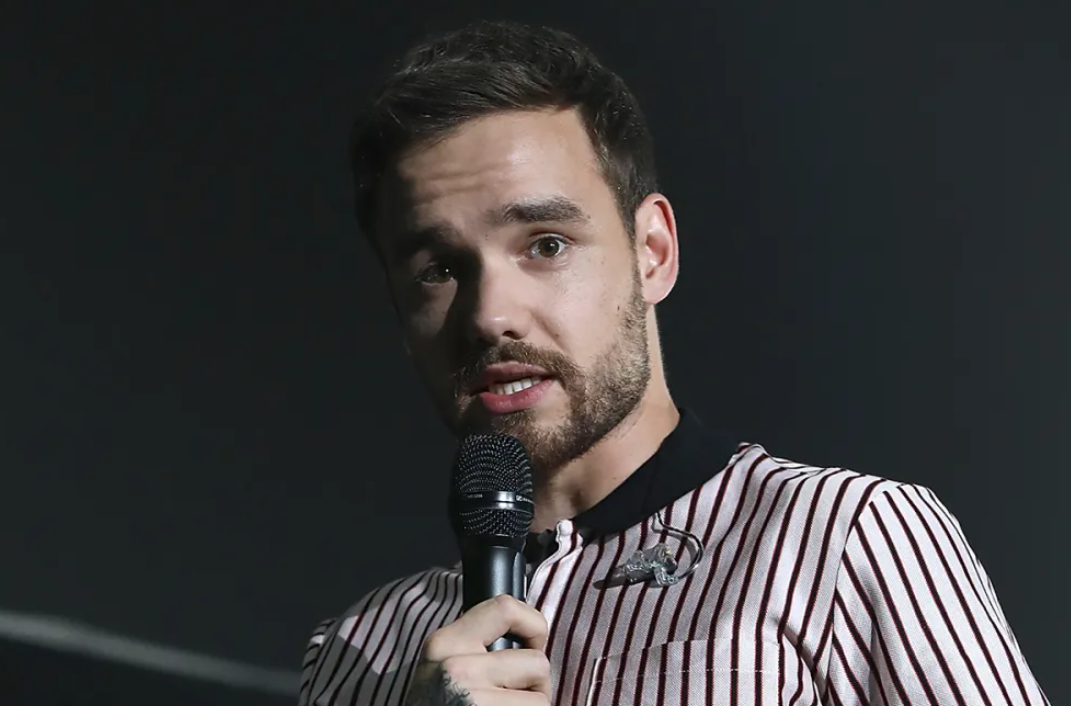.
. In the last hundred years alone, the world has advanced exponentially, with every field furthering itself at a rate never seen before. Sciences, like astronomy and medicine, have launched us into a newer and brighter future. The arts, like cinema and music, are also ever changing and growing. Technology has been especially prone to this rapid advancement, with computing advances and the rise of the internet connecting the world instantaneously for the first time in human history. All this potential, however, comes with a cost; weapons technology, propaganda, misinformation, and political agendas are all more accessible than ever to any and everyone.
. One new technology has taken the world by storm and put us on the brink of a new age: artificial intelligence, or AI. It’s something that’s been seen in science fiction books and movies for decades, a vague idea of a computer with the ability to “think for itself”. Modern AI, however, isn’t the sentient moral dilemma geeks and philosophers alike have been pressed about since Asmov’s I, Robot. Rather, it’s a technology with the ability to self-learn through highly complex algorithms that even coders don’t understand. This technology’s ability to advance with use rather than user input is groundbreaking, and it has already been implemented to create things we thought couldn’t exist for another hundred years.
. A fusion reactor in the UK ran for a record breaking total of five seconds thanks to the use of predictive AI that microcorrected issues milliseconds before they happened, something that no human would ever have the reaction time to do. With fusion technology, near infinite power sources are possible, meaning gas and other dirty means of energy could potentially be eliminated entirely. A Dutch man with a severed spinal cord is walking again because of an AI based neuro implant, a step so cutting edge in the medical field that it doesn’t even sound plausible. Already, AI generated models are more precise than humans’ by strides in predicting projected stock fluctuations. All of these advancements have been made in only the last five to ten years at most, with more experimental AI technologies popping up every day. The possibilities are truly endless.
. The technology, in itself, isn’t harmful. However, the people who now have access to the best technology in human history aren’t all saints either. People in power have historically lacked good intention, and with the state of the world now, that isn’t going to be changing anytime soon. With every step forward in renewable, clean energy, another gas tycoon takes a step back, losing its hold on both profit and monopoly in the power industry. With every medical advance comes a blow to insurance agencies, not only lowering their profit but also lowering the economy’s value with less circulating money. Every accurately graphed prediction made by AI is another human job lost and another blow to the already fragile economic ecosystem, and these are only the unintentional side effects.
. So what about the people who really are just all bad? What about the people who actively profit from real harm? Photo generative AI particularly is the most purely detrimental use of the technology yet, along with “auditory” AI and the very newly perfected “video” AI. The destruction and havoc these can wreak on politics, crime, and injustice are innumerable. Political agendas are now served fresh propagandised images straight from the very technology that could be our saviour. A video of President Joe Biden giving a problematic speech he never gave, a photo of Prime Minister Rishi Sunak signing documents he never signed, even just a generated audio of the President Vladimir Putin declaring another war somewhere, it’s all possible now. Anyone can use these technologies to make whatever they’d like; the technology is already released to the public with nearly no restrictions on its use.
. Thankfully, the majority of the internet is a cyberspace full of memes and dumb cat videos. The most popular use of this power has been to make rap style music sung by classic cartoon characters, with one proclaimed “AI artist” aliased as Glorb amassing tens of millions of plays to his Spongebob rap songs on spotify. This is a creative way to use AI generated audio entertainingly rather than maliciously; the point of this silly music is pure fun. With the new release of an unintelligibly fake video AI has come videos of celebrities like Ice Spice and the Kardashians teaching calculus, another example of a relatively harmless use of it all.
. Hia Banerjee, a sophomore at Westfield High, uses AI to learn: “I get the need for normal AI because like, I’ve used AI to help explain math to me when I didn’t get it, but what is the need for video AI?”
. Aditya Madan, a fellow sophomore student, comments, “Actually, there’s one good reason for video AI; have you seen the stock images of waves crashing on the beach? It’s really easy to make B-roll shots with that. It’s definitely a work in progress, but it’s also really accurate. The one they [Sora AI] showed off first was the woman walking in Tokyo; if you don’t look too closely, you really couldn’t tell. It’s a work in progress!” He laughs, then reminisces, “A year ago, we had Will Smith eating spaghetti with his hand coming off, so compared to what we have now, it’s a huge leap.” In fact, it was only eleven months ago that AI video was completely incoherent. Now, it’s almost indistinguishable from reality.
. Khadeeja Rafiq, sophomore, gives us her ideas for using AI for good. She explains, “You know those animal movies? Yeah, like, I don’t want animals to be abused, so I think they should use AI for CGI.”
. The arts and cinema, however, have actually taken a major blow due to the misuse of AI. Entering prompts such as “blue cartoon flower dancing” can generate animations of “art” in mere seconds, which people have commonly begun to pawn off as their own. Hayao Miyazaki, the creator of the critically acclaimed Studio Ghibli animated movies, called AI created animation “an insult to life itself”, and rightly so. Art, an expression of the human soul, is nothing when made by a machine.
. It gets worse. Lifelike AI videos have already been used to facilitate real crime. Taylor Swift was a victim of AI generated pornographic videos, and with the technology we have, just one single picture of anyone’s face can generate the same thing. Cruel people can ruin others’ relationships, job opportunities, credibility, and lives.
. Hia speaks on this, saying, “I think it’s really really dangerous for certain circumstances. You know those random ads like, ‘Karen is five miles away from you’? Those ads have gotten bad. They’ve been making nudes of celebrities, and that’s like, really, really twisted. ‘Oh, what would it look like if Taylor Swift was doing blah blah?’. I feel like it can be used to exploit people. We need to stop it. Comparing the good to the bad, there is way more bad than good.”
. Vini Mandavilla, sophomore, pipes in: “If some guy is a paedophile, they can create anything. It could literally break the judicial system too, because you could create fake evidence with it.” She’s right; anything can be faked, and video surveillance is no longer a reliable source of evidence in court of law. A video of anyone stealing a car can be generated with ease.
. AI is just a technology; it doesn’t know that generating explicit content of a Facebook mom’s toddler is morally unacceptable, and in fact, creeps have already profited incredibly off the back of this crime. Deranged anonymous Reddit and X/Twitter users have started to vie for the creation of AI child pornograpy to “stop real child trafficking”, which may be one of the most braindead takes of all time. The fact that real people like that exist out there is devastatingly disheartening for our childrens’ and our own futures.
. Khadeeja winces, muttering, “So disgusting. We need to stop video AI, just shut it down. We don’t need to go any farther.” Vini wraps it up by saying solemnly, “As [Aditya] said, it’s a ‘work in progress’, but I don’t think that’s a good thing, guys. If this is a work in progress, meaning it’s gonna get better, we should get rid of it.”
. We stand on the precipice between the greatness of the future and a misstep able to set humanity further back into corruption. This time will surely be written down in the books as a turning point for technology and one of the most influential and important moments in human history. It’ll either be where it all goes wrong or where we, as a species, enter a new enlightenment era. I’m not holding my breath.





